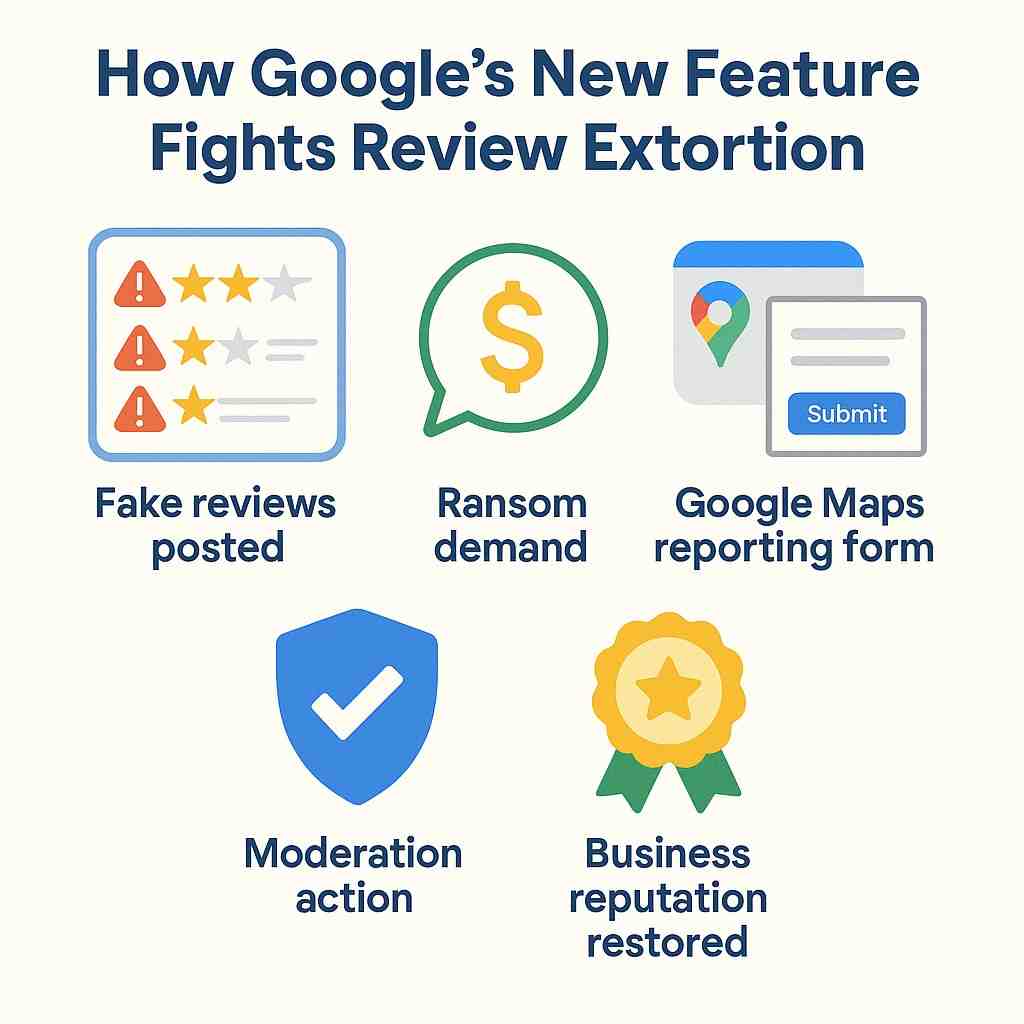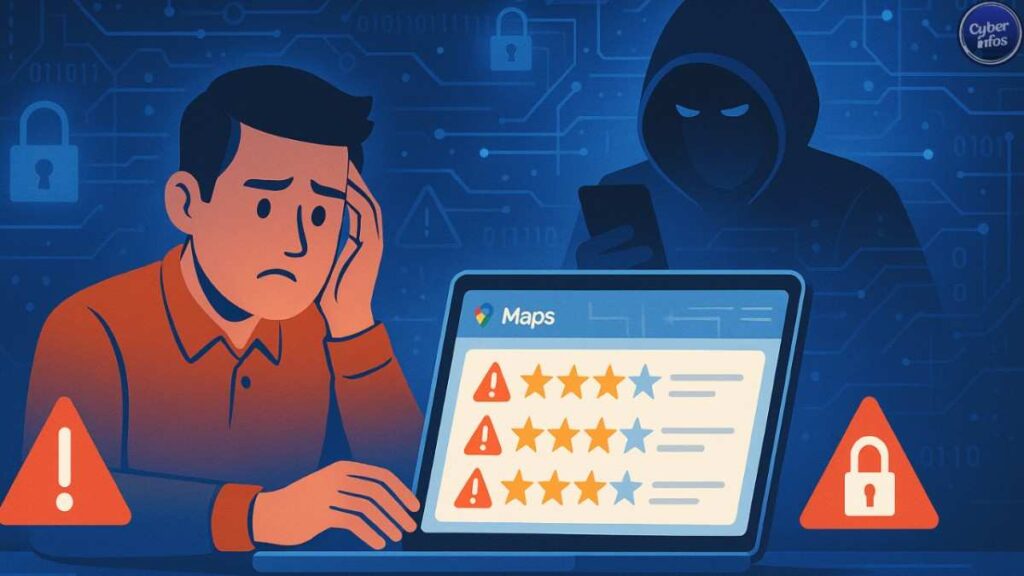This tool aims to fight the growing problem of review bombing, where attackers flood businesses with fake negative reviews and then demand payment to remove them.
What’s Happening
According to Google, scammers increasingly post fake one-star reviews on business profiles. They then contact the owners through third-party messaging apps demanding money in exchange for stopping further fake reviews.
“Bad actors try to circumvent our moderation systems and flood a business’s profile with fake one-star reviews,” said Laurie Richardson, VP of Trust & Safety at Google. “Following this initial attack, the scammers directly contact the business owner to demand payment.”
With the new system, affected businesses can now use a dedicated Google Maps reporting form to report such extortion attempts for faster action and protection.
Other Growing Online Scam Trends

A longside this update, Google also warned users about a range of new scams circulating online. Here are some of the most common ones:
1. Online Job Scams
Fraudsters impersonate employers or recruiters to trick job seekers into sharing personal data or downloading malware disguised as application files or interview tools.
2. AI Product Impersonation Scams
Cybercriminals create fake websites mimicking popular AI tools like ChatGPT or Midjourney. They promise free access but deliver malicious apps or “fleeceware” instead.
3. Malicious VPN Apps and Extensions
Fake VPNs are distributed under the guise of privacy tools but install malware or information stealers capable of draining cryptocurrency wallets.
4. Fraud Recovery Scams
Scammers pose as recovery agents to exploit victims a second time, pretending to help recover funds lost in previous scams. The FBI issued a warning about this in August 2025.
5. Seasonal Holiday Scams
During holiday seasons, fake social media ads and websites trick users into buying counterfeit goods or revealing financial details.
How to Stay Safe
- Be cautious of unsolicited messages or emails requesting personal data.
- Never pay anyone claiming they can “fix” or delete online reviews.
- Download apps only from trusted sources like Google Play or the App Store.
- Don’t click suspicious links offering exclusive AI access or deals.
- Stay alert during festive shopping seasons; verify sellers before paying.
Meta Faces Similar Concerns Over Scam Ads
A Reuters investigation revealed that Meta (parent company of Facebook and Instagram) might be earning billions from scam-related ads and illegal product promotions.
According to internal Meta documents, scam ads could account for as much as 10.1% of Meta’s total ad revenue—around $16 billion annually. Some high-value advertiser accounts reportedly accrued over 500 strikes before any ban.
Meta has denied these figures, calling them exaggerated, and said it removed 134 million scam ads in 2025 alone. Nonetheless, the report highlights how challenging it is for social platforms to balance moderation and monetization.
Final Thoughts
Google’s new Maps feature represents a much-needed step toward safeguarding small businesses from review-based extortion. For many local merchants, online reputation is critical to survival, and fake reviews can cause real financial harm.
While this move strengthens Google’s Trust & Safety framework, it also underscores a larger issue: the rise of AI-driven scams and misinformation across major platforms. Staying informed, vigilant, and proactive remains the best defense against digital fraud.


